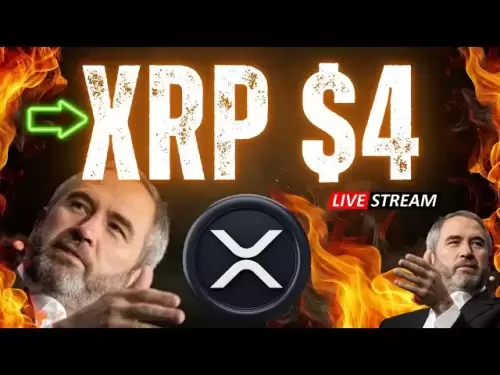-
 Bitcoin
Bitcoin $118100
-0.44% -
 Ethereum
Ethereum $3585
5.43% -
 XRP
XRP $3.434
5.65% -
 Tether USDt
Tether USDt $1.000
0.02% -
 BNB
BNB $743.8
3.89% -
 Solana
Solana $178.7
3.84% -
 USDC
USDC $1.000
0.03% -
 Dogecoin
Dogecoin $0.2381
12.81% -
 TRON
TRON $0.3270
3.62% -
 Cardano
Cardano $0.8315
4.93% -
 Hyperliquid
Hyperliquid $44.51
-4.42% -
 Stellar
Stellar $0.4710
1.52% -
 Sui
Sui $3.896
-2.51% -
 Chainlink
Chainlink $18.09
6.98% -
 Hedera
Hedera $0.2681
9.31% -
 Bitcoin Cash
Bitcoin Cash $516.7
4.83% -
 Avalanche
Avalanche $23.95
6.96% -
 Shiba Inu
Shiba Inu $0.00001490
5.67% -
 UNUS SED LEO
UNUS SED LEO $8.966
0.80% -
 Toncoin
Toncoin $3.294
4.39% -
 Litecoin
Litecoin $105.4
4.69% -
 Polkadot
Polkadot $4.356
5.30% -
 Uniswap
Uniswap $10.29
17.25% -
 Monero
Monero $327.9
-3.04% -
 Bitget Token
Bitget Token $4.942
4.33% -
 Ethena USDe
Ethena USDe $1.001
0.08% -
 Pepe
Pepe $0.00001348
2.17% -
 Dai
Dai $1.000
0.02% -
 Aave
Aave $320.8
0.58% -
 Bittensor
Bittensor $411.8
-4.07%
Coinbase vs Robinhood for crypto
Coinbase offers more crypto options, advanced tools, and better security, while Robinhood provides simplicity and commission-free trading but with fewer features and limited asset transfers.
Jul 18, 2025 at 08:14 am
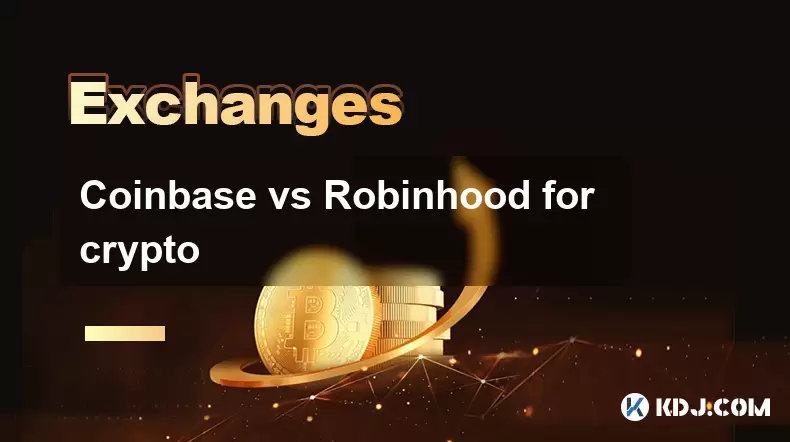
Understanding the Differences Between Coinbase and Robinhood
When it comes to trading cryptocurrencies, Coinbase and Robinhood are two of the most popular platforms among retail investors. However, they differ significantly in terms of features, fees, user experience, and the range of services offered. Coinbase is a dedicated cryptocurrency exchange that offers a wide range of digital assets, advanced trading tools, and secure storage options. On the other hand, Robinhood is a mainstream financial services app that added crypto trading to its offerings, but it operates more like a brokerage than a traditional crypto exchange.
One of the primary distinctions between the two is the availability of cryptocurrencies. Coinbase supports a much larger number of tokens, including many altcoins and newer projects. In contrast, Robinhood offers a limited selection of major cryptocurrencies such as Bitcoin, Ethereum, Dogecoin, and Litecoin.
Fee Structures and Trading Costs
Fees are a crucial factor for users when choosing a crypto trading platform. Coinbase charges a spread of approximately 0.5% on trades, along with variable transaction fees depending on the payment method and trade size. Users who prefer more control can switch to Coinbase Pro, which offers lower fees and advanced order types for more experienced traders.
Robinhood, on the other hand, advertises commission-free trading for crypto. While this may seem more attractive at first glance, users should be aware of the hidden costs. Robinhood uses a model known as payment for order flow, where it routes trades to market makers who may not always offer the best prices. This could result in less favorable execution prices compared to platforms like Coinbase, where users can see the exact fees they're paying.
Security and Storage Options
Security is another critical area where Coinbase and Robinhood differ significantly. Coinbase is known for its robust security infrastructure, including offline cold storage for most user funds and two-factor authentication (2FA) as a standard feature. Additionally, Coinbase offers Coinbase Wallet, which allows users to store their crypto in a non-custodial wallet, giving them full control over their private keys.
In contrast, Robinhood Crypto does not allow users to transfer their crypto assets off the platform. This means that users cannot move their holdings to a personal wallet or another exchange. Robinhood does not support cold storage for user funds, which may be a concern for those who prioritize maximum security for their digital assets.
User Interface and Trading Experience
The user experience can greatly influence how comfortable a trader feels on a platform. Coinbase has a clean and intuitive interface, especially for beginners, but it also offers advanced tools for experienced traders through Coinbase Pro. Users can easily buy, sell, and store crypto, and access educational resources to improve their understanding of digital assets.
Robinhood’s interface is designed for simplicity, especially for those who are already familiar with stock trading. However, its crypto features are more limited compared to Coinbase. For example, Robinhood does not support limit orders or stop-loss orders for crypto trading, which are essential tools for managing risk and executing more sophisticated trading strategies.
Regulatory Compliance and Insurance Coverage
Regulatory compliance is an important consideration for crypto investors, especially in the United States. Coinbase is one of the most regulated crypto exchanges in the U.S., with licenses in multiple states and compliance with various financial regulations. It also offers FDIC insurance for USD deposits up to $250,000, although this does not extend to crypto holdings.
Robinhood Crypto is also regulated and registered with the Financial Crimes Enforcement Network (FinCEN) as a money services business. However, it does not offer insurance for crypto assets. This lack of insurance coverage may be a drawback for users who are concerned about the safety of their holdings in the event of a security breach or insolvency.
Mobile App Features and Accessibility
Both platforms offer mobile apps that allow users to trade on the go, but there are notable differences in functionality. Coinbase’s mobile app provides a comprehensive trading experience, including real-time price tracking, push notifications for price changes, and the ability to use Coinbase Wallet for decentralized app (dApp) interactions.
Robinhood’s mobile app is designed with simplicity in mind, making it ideal for users who want to quickly check their portfolio or make trades without navigating complex menus. However, it lacks some of the advanced features found on Coinbase, such as price alerts, detailed transaction history, and wallet integration with the broader crypto ecosystem.
Frequently Asked Questions
Can I transfer crypto from Coinbase to Robinhood?
No, Robinhood does not allow incoming transfers of cryptocurrency. You would need to sell your crypto on Coinbase, transfer the proceeds to your bank account, and then deposit the funds into Robinhood to buy crypto again.
Does Coinbase offer staking or interest-bearing accounts for crypto?
Yes, Coinbase offers staking for certain cryptocurrencies, allowing users to earn rewards by locking up their assets. It also provides Coinbase Earn, where users can learn about crypto and earn small amounts of digital assets.
Is Robinhood suitable for advanced crypto traders?
Robinhood is more suited for casual investors rather than advanced traders. It lacks features like limit orders, stop-losses, and access to a wide range of cryptocurrencies, which are essential for more complex trading strategies.
Can I use both Coinbase and Robinhood together?
Yes, many users maintain accounts on both platforms. Coinbase is ideal for active trading and storing a variety of cryptocurrencies, while Robinhood may be used for quick trades or as part of a diversified investment strategy.
Disclaimer:info@kdj.com
The information provided is not trading advice. kdj.com does not assume any responsibility for any investments made based on the information provided in this article. Cryptocurrencies are highly volatile and it is highly recommended that you invest with caution after thorough research!
If you believe that the content used on this website infringes your copyright, please contact us immediately (info@kdj.com) and we will delete it promptly.
- Altcoins, Ethereum, and SharpLink: A New Era in Crypto Investment?
- 2025-07-19 09:15:12
- Coin Shop Homicide: Guilty Verdict After Decade-Long Wait
- 2025-07-19 08:50:13
- Ethereum's Ether Surge: Riding High at $3,700 – What's Fueling the Rally?
- 2025-07-19 09:15:12
- Shiba Inu, Pepe, and the Token Rally: What's Next for Meme Coins?
- 2025-07-19 08:50:13
- BlockDAG, XRP, and the Quest for Higher Returns: A 2025 Crypto Deep Dive
- 2025-07-19 09:15:14
- PEPE Coin, Ozak AI, and Crypto Analysis: Riding the Meme Wave to Potential Gains
- 2025-07-19 09:15:14
Related knowledge
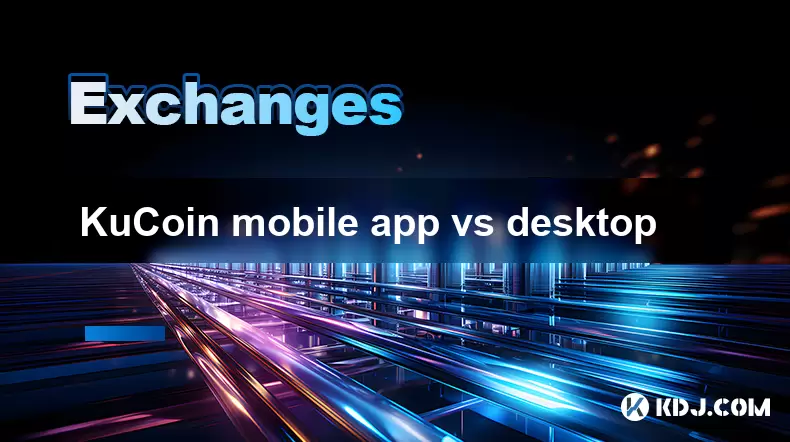
KuCoin mobile app vs desktop
Jul 19,2025 at 08:35am
Overview of KuCoin Mobile App and Desktop PlatformThe KuCoin ecosystem offers both a mobile app and a desktop platform, each designed to cater to diff...
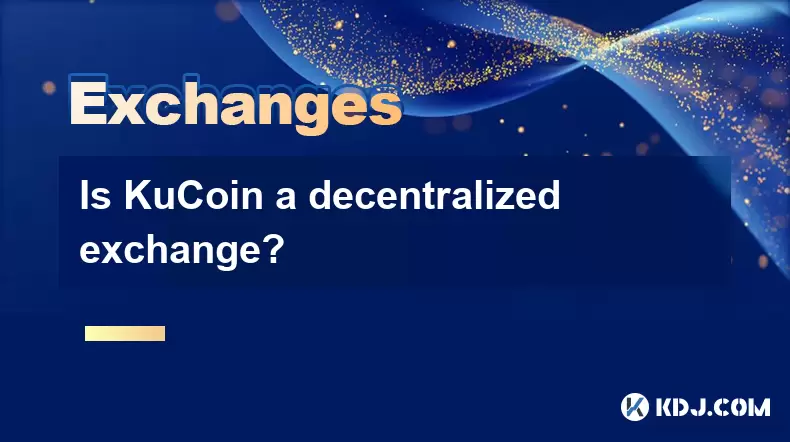
Is KuCoin a decentralized exchange?
Jul 18,2025 at 03:15pm
Understanding Decentralized Exchanges (DEXs)To determine whether KuCoin is a decentralized exchange, it's essential to first understand what defines a...
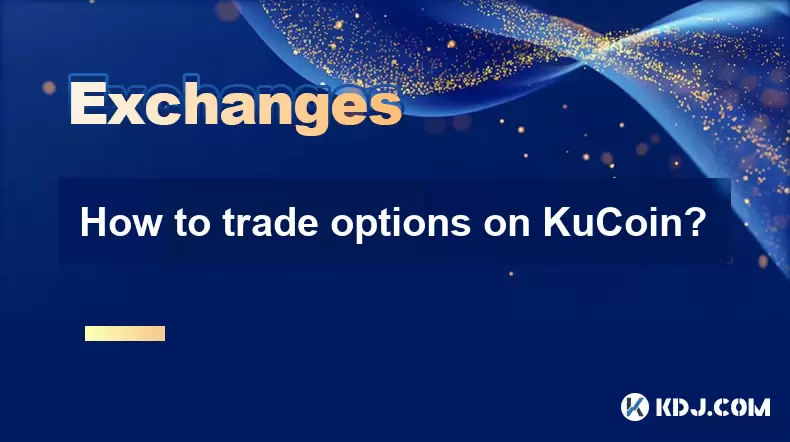
How to trade options on KuCoin?
Jul 19,2025 at 03:42am
Understanding Options Trading on KuCoinOptions trading on KuCoin allows users to speculate on the future price movements of cryptocurrencies without o...

Lost Google Authenticator for KuCoin
Jul 19,2025 at 02:35am
Understanding the Importance of Google Authenticator in KuCoin SecurityGoogle Authenticator is a critical tool used by KuCoin users to enable two-fact...
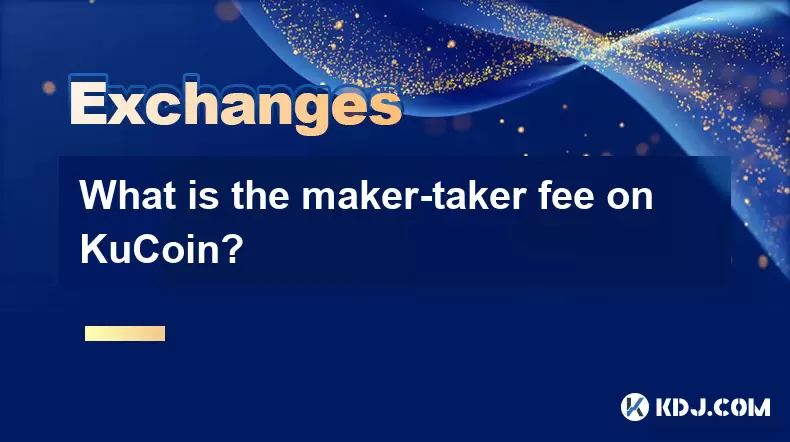
What is the maker-taker fee on KuCoin?
Jul 18,2025 at 12:42pm
Understanding the Maker-Taker Fee ModelThe maker-taker fee model is a pricing structure used by many cryptocurrency exchanges, including KuCoin, to de...
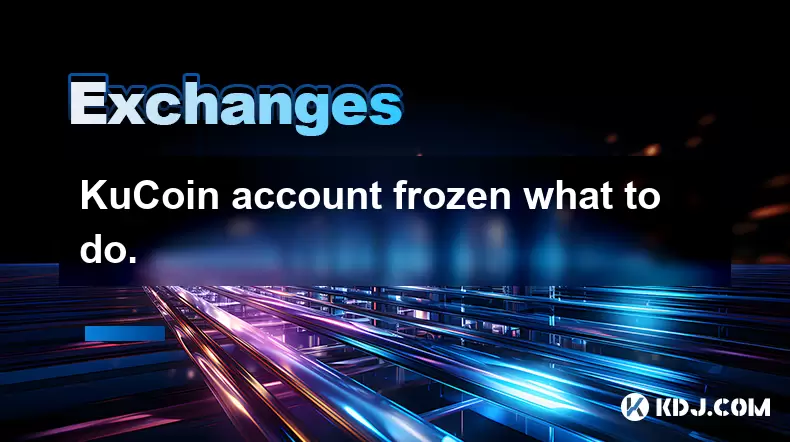
KuCoin account frozen what to do.
Jul 19,2025 at 04:35am
Understanding Why Your KuCoin Account Was FrozenIf you've discovered that your KuCoin account is frozen, the first step is to understand why this has ...

KuCoin mobile app vs desktop
Jul 19,2025 at 08:35am
Overview of KuCoin Mobile App and Desktop PlatformThe KuCoin ecosystem offers both a mobile app and a desktop platform, each designed to cater to diff...

Is KuCoin a decentralized exchange?
Jul 18,2025 at 03:15pm
Understanding Decentralized Exchanges (DEXs)To determine whether KuCoin is a decentralized exchange, it's essential to first understand what defines a...

How to trade options on KuCoin?
Jul 19,2025 at 03:42am
Understanding Options Trading on KuCoinOptions trading on KuCoin allows users to speculate on the future price movements of cryptocurrencies without o...

Lost Google Authenticator for KuCoin
Jul 19,2025 at 02:35am
Understanding the Importance of Google Authenticator in KuCoin SecurityGoogle Authenticator is a critical tool used by KuCoin users to enable two-fact...

What is the maker-taker fee on KuCoin?
Jul 18,2025 at 12:42pm
Understanding the Maker-Taker Fee ModelThe maker-taker fee model is a pricing structure used by many cryptocurrency exchanges, including KuCoin, to de...

KuCoin account frozen what to do.
Jul 19,2025 at 04:35am
Understanding Why Your KuCoin Account Was FrozenIf you've discovered that your KuCoin account is frozen, the first step is to understand why this has ...
See all articles

























